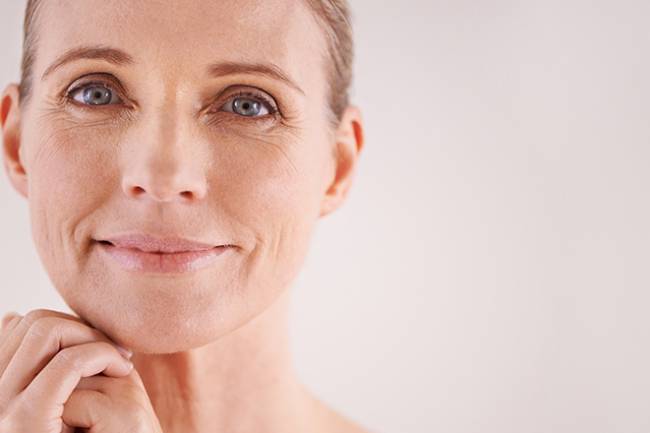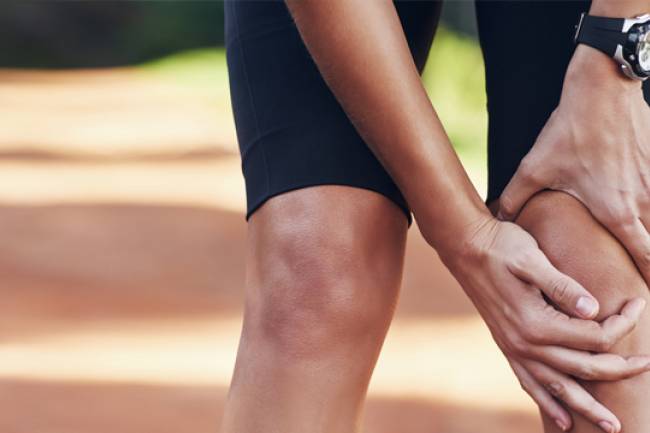How Vitamin B Affects Acne

If you've heard that vitamin B may help to get rid of acne then this article is for you.
While many articles online are based around rumours and hearsay, in this article we're going to take a more scientific approach.
We'll examine the results of rigorous investigations to reveal if vitamin B can affect your acne, which particular B vitamins seem to have the greatest impact, and how best to use vitamin B in practice.
Before We Start - The Vitamin B Complex
As you're probably aware there are eight different types of vitamin B, which are often clumped together as simply “vitamin B”.
In reality, however, each of these vitamins can have quite a different effect on the body.
As a result it's most effective to focus on specific B vitamins which seem to have an effect on acne. Irrespective of the particular B vitamins we talk about it is vital to appreciate that they tend not to be stored in the body.
Instead, if you consume more than your body really needs then it will simply be excreted in your urine. This is important to know, because it means that we all need a consistent, reliable source of vitamin B on a regular basis to avoid deficiencies.
Don't assume that just because you ate lots of turkey last month that your vitamin B6 levels will necessarily be high.
The result is that as we go through the effects of vitamin B on acne, you should pay particular attention to the dietary sources (or consider supplementation) so that you can ensure you're feeding your body a beneficial supply on a near-daily basis. If necessary, look to change your regular diet or add a low-cost supplement to ensure this ongoing support.
Vitamin B5 for Acne
 Working numerically through the various B vitamins, vitamin B5 is the first one on the list which is known to affect acne.
Working numerically through the various B vitamins, vitamin B5 is the first one on the list which is known to affect acne.
Vitamin B5, sometimes known as “pantothenic acid”, is a widespread nutrient found in a huge range of different foods. This is probably good news, because vitamin B5 has a vast number of different effects on the body.
Pantothenic acid is a major component of a substance known as “Co Enzyme A” (or CoA for short). Vitamin B5's crucial role in the creation of this substance almost entirely explains its various benefits for the body, including its impact on acne.
One of the many roles that Co Enzyme A plays in the body is that of breaking down fatty acids so that their core components can be used in everyday metabolism. This might not sound like the most exciting process, but for people with acne the effects can be quite impressive.
Most cases of acne arise because excessive oils are produced by the sebaceous glands of the skin. These, in turn, can become blocked by the volume of oil, leading to the swelling and redness that we identify as acne.
A highly effective way to reduce acne is therefore to limit the oils present in the skin; which is exactly what Co Enzyme A - and by extension vitamin B5 - helps to achieve.
To test this theory a number of fascinating scientific studies have been carried out in recent years. In one test, one hundred patients suffering from serious acne were prescribed 10 grams of vitamin B5 to consume per day, in four equally-sized doses. Within a matter of days, volunteers found that their pores began to reduce in size, their skin was less oily and that the visible symptoms of acne began to clear up. After eight weeks of daily provision, most participants showed significant improvement in their condition.
Interestingly, once results had been achieved the total daily intake was progressively dropped, over a period of 18 months.
The scientists carrying out the study noted that a maintenance dose of between 1 and 5 grams per day was effective at keeping acne at bay, depending on the initial severity of symptoms.
In a more rigorous test volunteers were divided randomly into two different groups. One took a vitamin B5 supplement while the other was given a placebo. In this way fair comparisons could be made between the effects of pantothenic acid versus no treatment. After 12 weeks of study the differences between both groups were reported as “significant”, with acne in the vitamin B5 group improving at a much greater rate than individuals not receiving treatment.
In truth, it is important to appreciate that the current recommended intake of pantothenic acid is just 6 mg per day, while these studies on acne have used doses of 10 grams or more per day. This is an increase of over 1500% over the typical dose.
While the above studies claim that a high intake of vitamin B5 is “safe, well tolerated and reduced total facial lesion count” there are still some medical professionals who have raised concerns about the long term effects of such a high dose. You are therefore advised to seek professional medical advice before commencing a treatment program with vitamin B5.
Great natural sources of vitamin B5 include chicken liver, sunflower seeds, salmon, avocado, corn, broccoli and mushrooms, while vitamin B5 supplements can make an easier solution if you're looking to hit those higher intake numbers.
Vitamin B6 for Acne
 Vitamin B6, also known as pyridoxine, plays an important role the maintenance of our skin and mucous membranes. It has long been noted by scientists that both people and animals, if fed on a diet that is deficient in vitamin B6, tend to develop dry, scaly, itchy skin. Fortunately this complication is soon resolved when suitable levels of pyridoxine are introduced into the diet.
Vitamin B6, also known as pyridoxine, plays an important role the maintenance of our skin and mucous membranes. It has long been noted by scientists that both people and animals, if fed on a diet that is deficient in vitamin B6, tend to develop dry, scaly, itchy skin. Fortunately this complication is soon resolved when suitable levels of pyridoxine are introduced into the diet.
It is interesting to note here that one experiment tried varying the level of vitamin B6 given to sufferers of acne. They found that doses of between 50mg and 250mg (depending on severity) resulted in a “marked reduction in the oiliness of the skin” which, in turn, improved acne in many subjects.
On the other hand, it is interesting to report that higher doses were found to produce similar effects as deficiencies such as “dryness and scaling”.
Therefore, while there is some evidence that vitamin B6 may benefit readers suffering from acne it seems that an excess is almost as damaging as a deficiency. Therefore, aiming to hit the “sweet spot” is likely to be most beneficial for your skin.
The current NHS recommendations for vitamin B6 in the diet are 1.2mg a day for women and 1.4mg a day for men. They also suggest that taking more than 200mg a day “can lead to a loss of feeling in the arms and legs known as peripheral neuropathy”.
As a result, your first goal should be ensuring that you're receiving suitable vitamin B6 in your diet. If you opt to use a supplement then be sure to avoid going over the 200mg threshold on a daily basis. As previous studies have found benefit from just 50mg this may be a safer target to aim for, before tweaking your intake in response to the effect on your condition.
Great dietary sources of vitamin B6 include turkey, beef, and chicken, tuna, pistachios, pinto beans, avocado and sunflower seeds. For an easier option, however, consider our vitamin B6 tablets, which offer an easy 50mg boost to your intake.
Vitamin B12 for Acne
Studies have found that vitamin B12 can have a significant effect on acne in some patients. However, far from reducing the incidence of spots, vitamin B12 instead seems to positively encourage them.
Studies in which patients receive vitamin B12 injections frequently note that acne can appear even after a single injection, yet soon clears up when treatment ceases. The effects were found to be particularly prevalent amongst women.
Research into why vitamin B12 has such a radical effect on acne suggests that it directly impacts skin bacteria. In short, when your vitamin B12 levels go up, the bacteria which can lead to acne are “supercharged” into action, at which point they begin to produce chemical compounds known as “porphyrins”.
Porphyrins are naturally-occurring pigments which have been shown to induce the inflammation surrounding pores that we know as acne.
The message here is that overdosing on vitamin B12, either through your diet or via supplements, has the potential to actually make your acne worse than it otherwise might be.
The NHS recommends that we get 1.5mcg per day, and that high levels of vitamin B12 are found in meat, eggs and dairy foods.
Conclusion
As we have seen, research studies have demonstrated that some of the vitamins which make up the vitamin B complex can have an impact on acne. Most notably, increasing your intake of vitamin B5 and B6 have the greatest potential to improve your condition.
The easiest way to achieve this is with supplements, thanks to their higher volume of beneficial nutrients.
Please consult your doctor before deliberately increasing your intake of any vitamins or minerals to ensure you stay in the best of health.
Lastly, if you'd like to discover other ways in which you may be able to improve your acne, here are some other helpful articles from the expert nutritionists at Simply Supplements:
Spirulina for Acne: The Truth Behind the Myths
The Benefits of Aloe Vera for Your Skin
Health Benefits of Evening Primrose Oil
Can Magnesium Improve Your Acne?
Sources:
http://truemedmd.com/pantothenic-acid-vitamin-b5-for-acne/
https://link.springer.com/article/10.1007/s13555-014-0052-3
https://www.cabdirect.org/cabdirect/abstract/19421403745
https://www.translationalres.com/article/0022-2143(52)90188-1/pdf
https://www.nhs.uk/conditions/vitamins-and-minerals/vitamin-b/
http://europepmc.org/abstract/med/157854
http://stm.sciencemag.org/content/7/293/293ra103.short
http://europepmc.org/abstract/med/130553

 Nicole
Nicole 
























